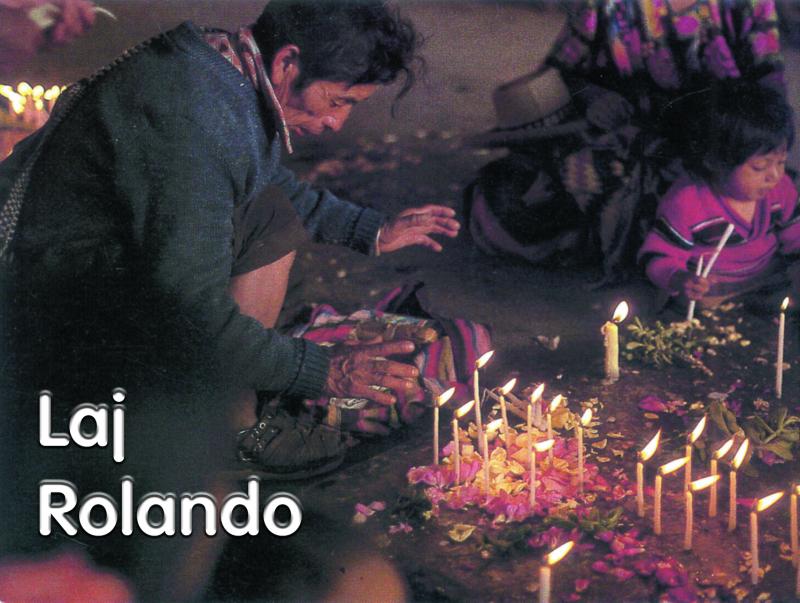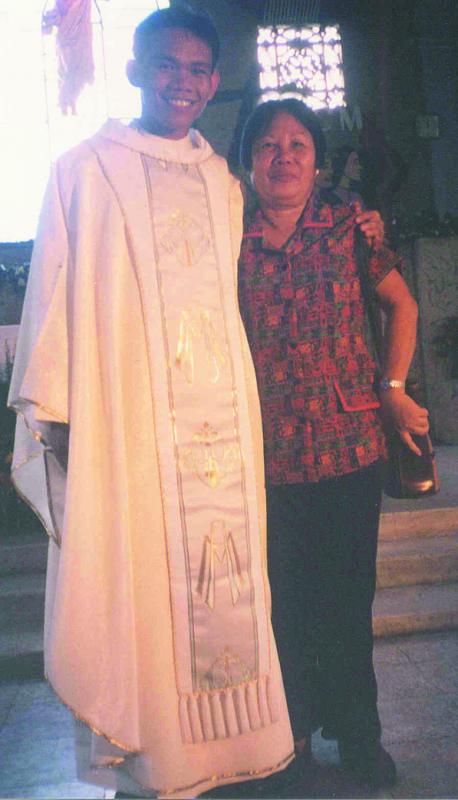Laj Rolando
By Fr. Edralin Daquipil cicm
Edralin Daquipil, cicm is a native of Negros Occidental in the Philippines. He arrived in Guatemala in July of 1996 for his three years of missionary internship. When he wrote this article he was living among the Maya Q’eqchi Indians, accompanying them in their work, harvesting cardamom and corn, listening to their stories and participating in their religious traditions. He was ordained a deacon in 1999 at the church of San Marcos the Evangelist in Tierra Nueva, Guatemala City. And last year he was ordained to priesthood in the Philippines at Sto. Rosario Church in Fabrica, Sagay, Negros Occidental.

I had finally reached Sawachil, the last community I was supposed to visit in order to complete my more than one year of immersion in the remote villages of Coban Alta, Verapaz in Guatemala. I stayed for one month in this small mountain village. And it was there I met Rolando.
My little friend
Rolando was sleeping soundly. When I first saw him upon entering the house, he was only half covered with the traditional Maya Q’eqchi cloth. He was ten months old, the youngest child of Don Pedro. Even though he could not speak yet, we became good friends. He used to crawl around the floor while I visited and he would just beam, “hah-hah! hahhah!”
For almost a week I did not see Rolando. I had been in the cornfield most of the time, helping the community. Then one day I decided to go and pay him a visit. When I saw him I thought he looked very weak. His family was with him. They were reciting a special spontaneous prayer for his recovery. They offered four lighted candles and blessed him with incense of opal. The conversation with his parents and brothers and sister led to stories about health and sickness experiences. I told them about an appendectomy I had and I showed them the thin scar on my belly. The way they inspected it demonstrated looks of amazement and wonder.

Spiritual chants or medicine?
A few days later it appeared that Rolando was not getting any better. He looked very weak and strange. It was obvious that he needed medical attention. It occurred to me that it would be wise to bring him to the government hospital in the city of Coban, where he could receive proper (and free) medical care. I told the parents that unless Rolando was transported to Coban he would probably die. I felt sure of this. This was where I came in conflict with a Mayan Q’eqchi Indian way of looking at things. For them, the village was the only place for Rolando. Rolando’s parents were not enthused about my suggestion. The elders of the community opposed the idea of taking him out of the village as well. There I stood, speechless. But not for long. Thank God their concern for Rolando’s life was stronger than their attachment to their customs.
Eight-hour-walk under the sun
The next day Rolando’s parents and his older brothers and I started walking across the mountains and hills to bring Rolando to the hospital. We walked for eight hours under the heat of the sun and traveled two hours on a chicken bus. We arrived at the hospital around five in the afternoon. Rolando was immediately taken to the emergency room. He was suffering from acute pneumonia.
Scared to death
All this was difficult for that family. Doña Luisa, Rolando’s mother, went inside the emergency room. Don Pedro and his eldest son, Francisco, were told to stay outside, near the entrance. Everything looked strange for them. They were totally unfamiliar with any hospital. There was so much going on there. Don Pedro admitted, “Never in my life have I experienced being in a hospital. Right now I am scared to death.”
Young life saved
Rolando stayed in the hospital for eight days. Then he got better and was allowed to go home. We were all delighted. Our efforts to save a young life had been successful. We returned to our humble village of Sawachil in good spirits, and the community welcomed us back. No arguments on modern medicines or laws of the spirits. After all, Rolando was saved.
They where reciting a special spontaneous prayer for his recovery. They offered four lighted candles and blessed him with incense of opal.
